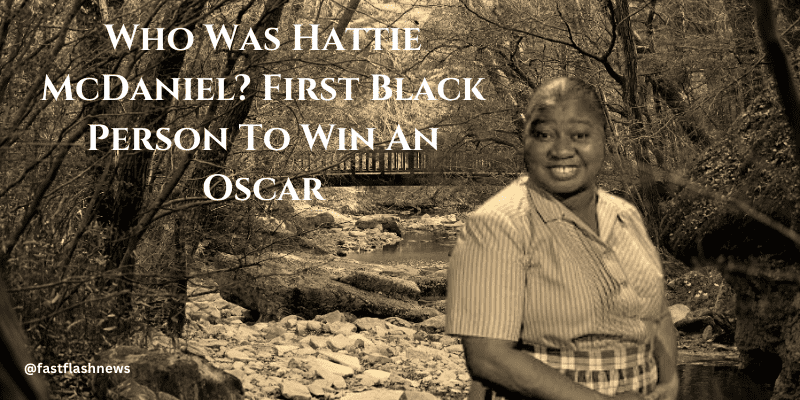Hattie McDaniel’s Oscar win for Gone With the Wind in 1940 helped pave the road for black representation in American cinema. However, some commentators saw her role Mammy as contentious in the black community. Know why.
On February 29, 1940, the world saw a historic moment when Hattie McDaniel took the stage to win the first Oscar ever given to a black person. The 46-year-old African American actress won the Best Supporting Actress Oscar for her performance as Mammy in the 1939 film Gone with the Wind. While producer David O. Selznick had prepared a speech for McDaniel, she chose to deliver a powerful one she co-wrote with her close friend and Black writer Ruby Berkley Goodwin. She stated, “I sincerely hope that I will always be an asset to my race and the film industry.”
Who Was Hattie McDaniel?
A pioneer. In American Cinema. Hattie McDaniel, born on June 10, 1893, was the youngest of 13 children born to Susan Holbert and Henry McDaniel, both once enslaved. Her mother was a gospel pianist, and her father served in the Civil War with the 122nd United States Colored Troops. Many of her siblings were actresses or singers, which sparked her passion in the performing arts.
McDaniel began her career as a musician with her brother Otis’ carnival company. In 1914, she and her sister Etta organized an all-female carnival act. Later, in 1920, she began working with Melody Hounds, a Black touring theatre troupe. After a few years in the theatre, she and her ensemble began performing on Denver’s commercial radio stations.
In 1926, McDaniel began publishing many of her self-written tunes to record companies. However, after the 1929 stock market crash, she was only able to find work as a club toilet attendant. While the bar’s owner was hesitant to let McDaniel sing, she quickly began dazzling audiences with her ballads before going to Los Angeles in 1931.
McDaniel initially struggled to obtain acting work in Hollywood and earned a livelihood as a maid and laundress. Meanwhile, her brother Sam, who worked on a radio show, was able to earn her a place. Hattie McDaniel’s show Hat-Hat-Hattie, about a quick-witted housekeeper, was a smash, but the compensation was insufficient for her to quit her job as a maid in real life.
In 1932, McDaniel received her first on-screen role as a house servant in The Golden West. Following that, she took on a number of film parts, the majority of which went uncredited. In 1934, she joined the Screen Actors Guild, a labor union for cinema and television actors. This led to her earning additional big roles and a contract with a large production firm.
By 1939, McDaniel had established himself as a famous figure in American film. She landed the role of Mammy, a maid in Gone With the Wind. While the film earned McDaniel many accolades as a supporting actor, her performance did not sit well with the African-American community or other critics since it was a stereotyped portrayal of black people.
Why was McDaniel’s Oscar win controversial?
McDaniel made history in 1940 as the first black actor to win an Oscar However, beneath this joyous occasion lay a sad truth. The banquet was hosted at a glitzy nightclub inside the Ambassador Hotel, where racial segregation still existed. According to reports, the film’s producer, David O. Selznick, had to beg for McDaniel’s admittance.
McDaniel and her date sat at a different table from the rest of the actors, against the far wall of the room. Gone with the Wind won eight Academy Awards that night. However, the film was criticised for its stereotypical portrayal of black characters. McDaniel’s remark, “I’d rather play a maid than be a maid,” sparked widespread attention.
Aside from entertainment, McDaniel had a vital role in African American politics and community service. During World War II, McDaniel chaired the Hollywood Victory Committee’s Negro Division. While she gained numerous acting awards throughout her career, her repeated appearances as a domestic servant drew criticism from black viewers.
According to Jill Watts, author of the biography Hattie McDaniel: Black Ambition, White Hollywood, “she’s an artist who’s been resisting white domination with performance — up until she becomes involved in white show business.”
Despite the polarizing criticisms, Hattie McDaniel is regarded as a pathfinder for the black community in cinema. She passed away in 1951.




